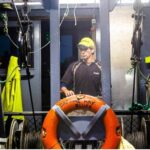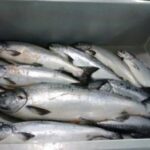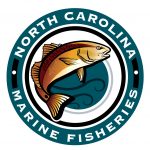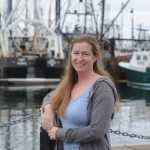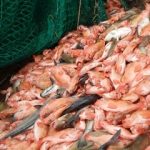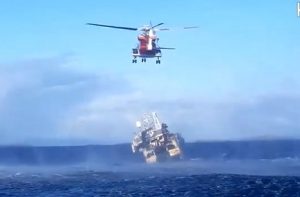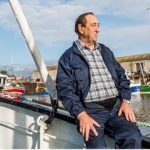Tag Archives: Russell Wangersky
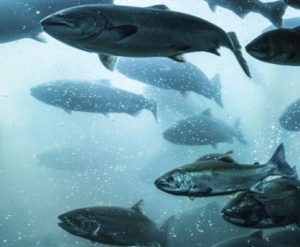
Russell Wangersky – Farmed Salmon: Left behind
It sometimes feels that we’re perpetually jumping onto a ship just about the same time as everyone else is abandoning it. And nowhere does it seem more like that than in the aquaculture business. As the plans steamroller ahead for a new massive Placentia Bay open pen Atlantic salmon project with the provincial government (and key regulator) fully onside, it’s hard to ignore that many others are moving in the other direction. In the state of Washington, a large-scale fish escape saw that state announce a ban on Atlantic salmon pen farming and a wind-down of existing operations. (The salmon aquaculture business in Washington is back under the microscope this month after 800,000 juvenile salmon had to be destroyed because they were found to be carrying a strain of Piscine orthoreovirus, which is dangerous for wild stocks of salmon.) >click to read<
The elephant on the wharf – ‘Salt-water mafia’ term coined for a reason
 I wish to reply to Russell Wangersky’s March 11th column (“FISH-NL goes cap in hand”) by stating for the record that the characterization of the FFAW as the “salt-water mafia” wasn’t my turn of phrase, but that of inshore harvesters. Indeed, the phrase is so common by the water these days that I’m surprised the salt-water mafia hasn’t challenged harvesters for calling them the FFAW. The way Wangersky sees it, by referring to the salt-water mafia as the FFAW (my apologies, can’t keep it straight), I’m actually “saying that the FFAW is an organized criminal enterprise” that’s been “implicated in everything from drug running to prostitution to murder.” That’s not true. The word “mafia” is defined as a “closed group of people in a particular field (or body of water), having controlling influence,” which, to most harvesters’ line of thinking, sums up the FFAW. Read the Ryan Cleary op-ed here 10:27
I wish to reply to Russell Wangersky’s March 11th column (“FISH-NL goes cap in hand”) by stating for the record that the characterization of the FFAW as the “salt-water mafia” wasn’t my turn of phrase, but that of inshore harvesters. Indeed, the phrase is so common by the water these days that I’m surprised the salt-water mafia hasn’t challenged harvesters for calling them the FFAW. The way Wangersky sees it, by referring to the salt-water mafia as the FFAW (my apologies, can’t keep it straight), I’m actually “saying that the FFAW is an organized criminal enterprise” that’s been “implicated in everything from drug running to prostitution to murder.” That’s not true. The word “mafia” is defined as a “closed group of people in a particular field (or body of water), having controlling influence,” which, to most harvesters’ line of thinking, sums up the FFAW. Read the Ryan Cleary op-ed here 10:27
Ryan Cleary – Russell Wangersky’s column demands a response
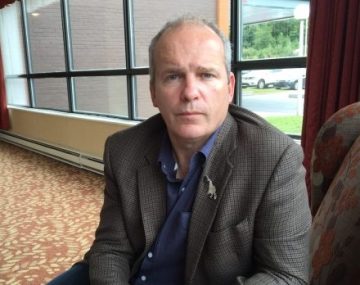 I wish to respond to Russell Wangersky’s Jan. 28th column (Fish harvesters have the most to lose), by noting with interest how Wangersky gets along with me, “on and off,” while he has known Lana Payne since the late 1980s when the two worked together at The Sunday Express. Does that mean Wangersky loves Lana more than me? I can’t quite tell. I know that Payne calls me as a “narcissist” and “liar,” and Wangersky spits out the word nationalist when he tackles me on the page. Personally, I see myself more Newfoundland and Labrador first, as opposed to Wangersky, who’s more Canadian first, which, “on and off,” separates us. Wangersky clearly states what he thinks about Newfoundland and Labrador opening the door to out-of-province fish buyers — he’s against it, “damaging the province as a whole by shipping a common resource out of province for the benefit of a few.” The “few” that Wangersky refers to are the few thousand inshore fish harvesters left in this province who can’t survive on 60-cents-a-pound cod, certainly not when there’s little else left to catch. Read the rest of Mr. Cleary’s letter here 19:24
I wish to respond to Russell Wangersky’s Jan. 28th column (Fish harvesters have the most to lose), by noting with interest how Wangersky gets along with me, “on and off,” while he has known Lana Payne since the late 1980s when the two worked together at The Sunday Express. Does that mean Wangersky loves Lana more than me? I can’t quite tell. I know that Payne calls me as a “narcissist” and “liar,” and Wangersky spits out the word nationalist when he tackles me on the page. Personally, I see myself more Newfoundland and Labrador first, as opposed to Wangersky, who’s more Canadian first, which, “on and off,” separates us. Wangersky clearly states what he thinks about Newfoundland and Labrador opening the door to out-of-province fish buyers — he’s against it, “damaging the province as a whole by shipping a common resource out of province for the benefit of a few.” The “few” that Wangersky refers to are the few thousand inshore fish harvesters left in this province who can’t survive on 60-cents-a-pound cod, certainly not when there’s little else left to catch. Read the rest of Mr. Cleary’s letter here 19:24
Russell Wangersky: Fish harvesters have the most to lose
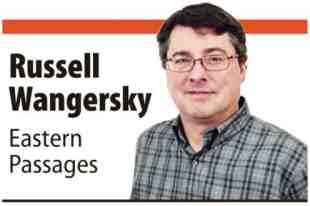 The whole issue is in the hands of the Labour Relations Board right now, so this column is unlikely to sway any votes — and that’s fine. Because, really, it’s fight for those involved. (And just for clarity’s sake, I’ve known Lana Payne, with the FFAW’s parent union, Unifor, since we worked together at The Sunday Express in the late 1980s. I’ve known FISH-NL’s Ryan Cleary since 1997, when he worked at The Telegram, and we get along, on and off.) I understand why the fish harvesters might want to leave the FFAW. The union, representing harvesters and those who work in the processing sector, is juggling a variety of interests, from processing workers to inshore fish harvesters to offshore trawler workers. And that does create problems. Read the op-ed here 09:10
The whole issue is in the hands of the Labour Relations Board right now, so this column is unlikely to sway any votes — and that’s fine. Because, really, it’s fight for those involved. (And just for clarity’s sake, I’ve known Lana Payne, with the FFAW’s parent union, Unifor, since we worked together at The Sunday Express in the late 1980s. I’ve known FISH-NL’s Ryan Cleary since 1997, when he worked at The Telegram, and we get along, on and off.) I understand why the fish harvesters might want to leave the FFAW. The union, representing harvesters and those who work in the processing sector, is juggling a variety of interests, from processing workers to inshore fish harvesters to offshore trawler workers. And that does create problems. Read the op-ed here 09:10


































